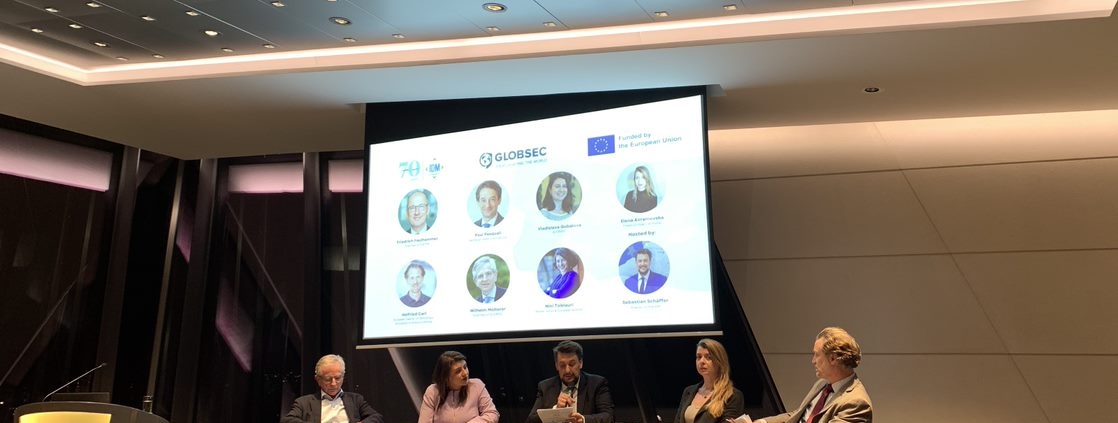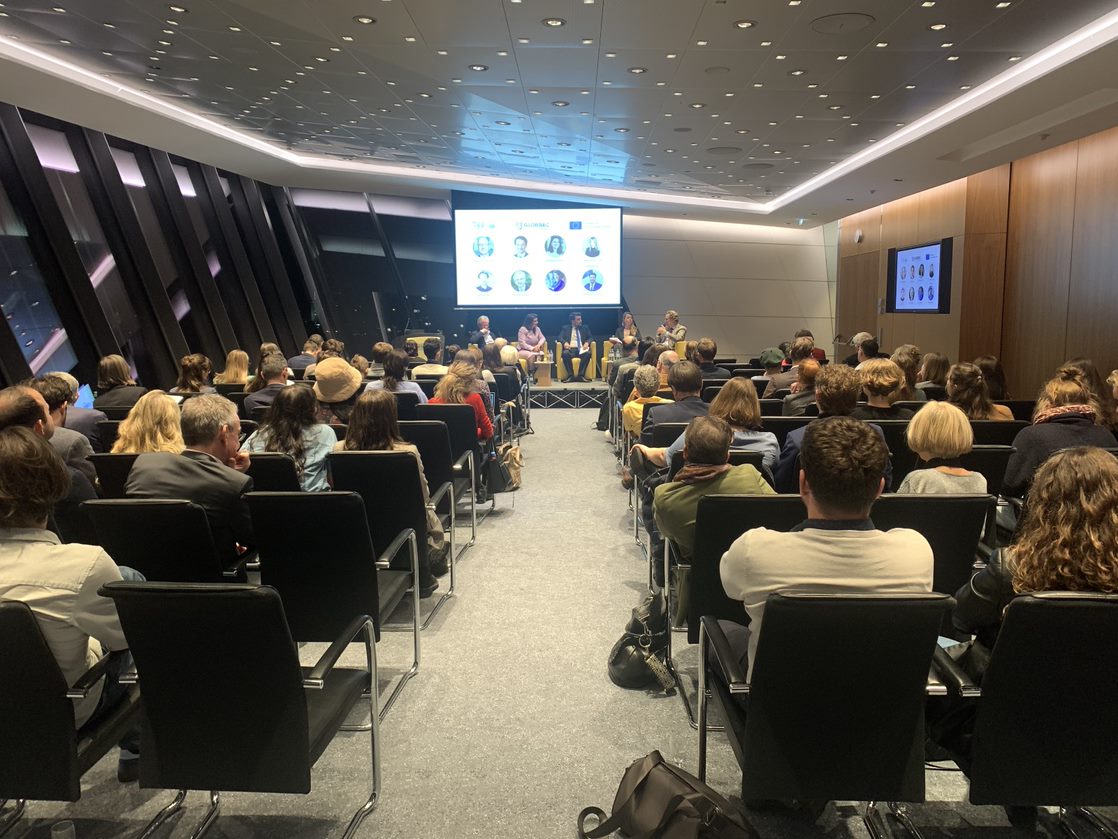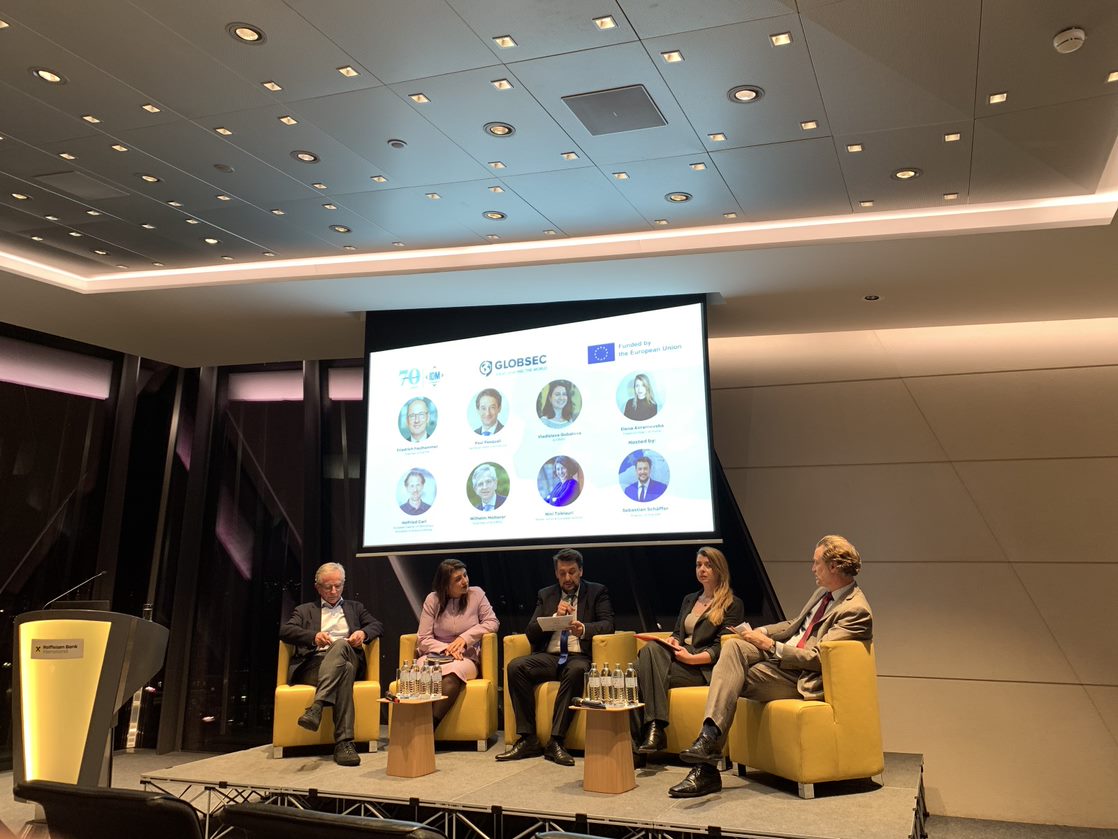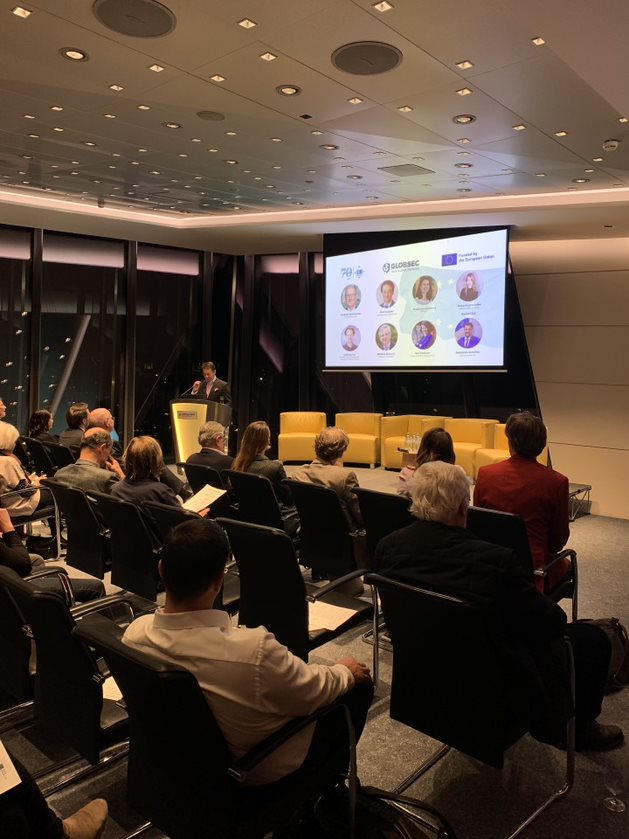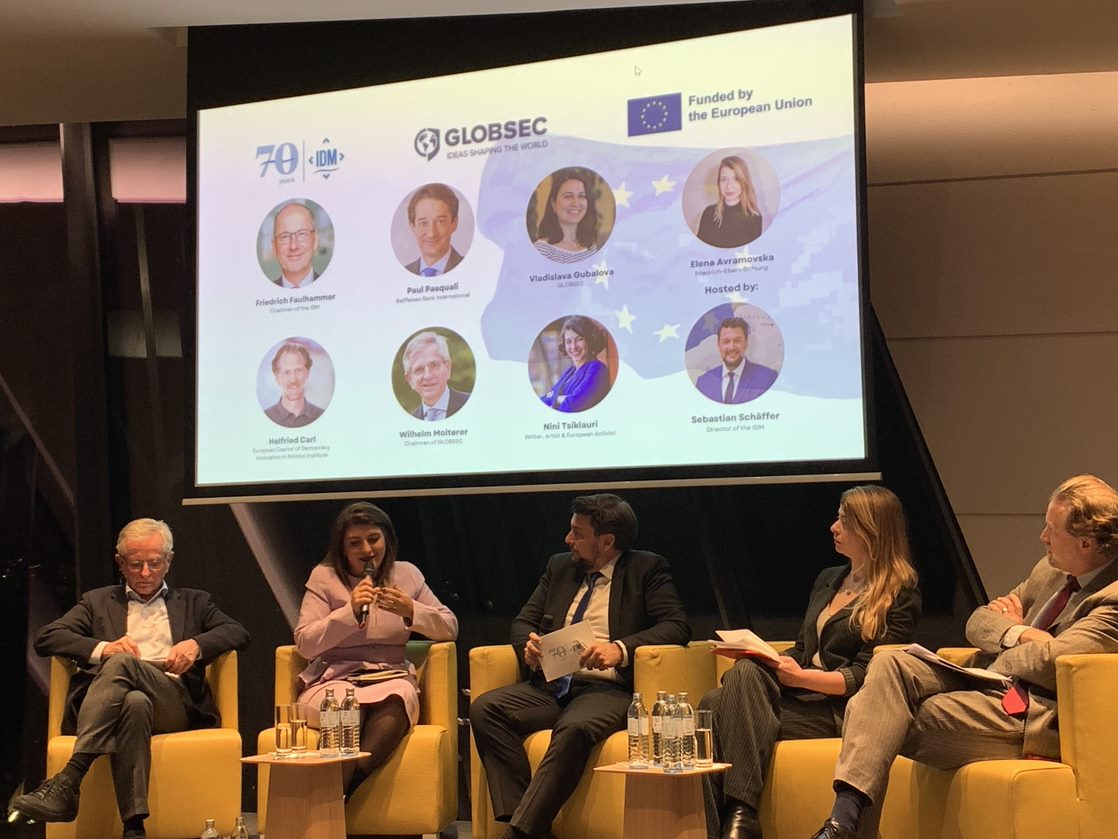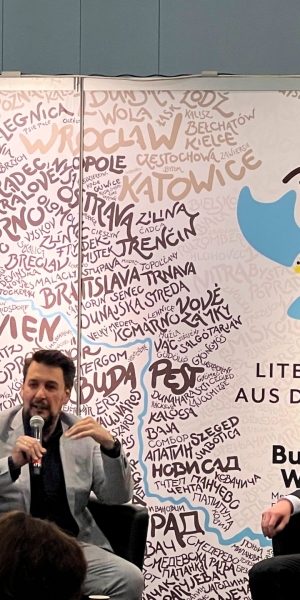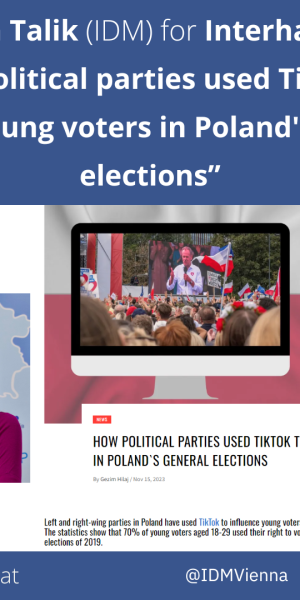Shaping Democratic Resilience in the European Union: The Future of European Democracy in the Eyes of Citizens
The sentiments of young people on the condition of democracy in Europe constitute an ongoing challenge for democratic institutions. In partnership with GLOBSEC, the IDM organized a panel discussion on questions of democratic resilience in the EU: Elena Avramovska, Senior Researcher for Democracy, Society and Youth; Helfried Carl, Founder of the European Capital of Democracy initiative; Wilhelm Molterer, Chairman of GLOBSEC Board of Directors; Nini Tsiklauri, Writer, Artist and European Activist. The discussion revolved around what challenges democracy faces at large and the importance of finding opportunities for intergenerational collaboration.
In response to GLOBSEC’s report “Young Minds, Democratic Horizons: Paving the Way for the EU’s Promising Future Attitudes of Young People from Austria, Greece, Ireland and Slovakia,” Elena Avramovska warned that young people lack faith in the legitimacy of democracy. Young people do not feel represented, she explained. The reality of demographic changes in Europe means that politicians have difficulty winning elections when catering to younger generations. This is due to both a growing population of older people and the high mobility of young people.
Wilhelm Molterer reminded the audience that democracy and economy go together, and should not be debated separately. Although globalization is playing an increasingly significant role in the world, democratic toolkits remain bound by the borders of the nation. National politicians become thought of as responsible for things which they have no control over due to a globally oriented public consciousness. This leads to disappointment among the people, and disappointment among the people, in turn, leads to the “end of democracy.”
Helfried Carl proposed that politics is ultimately about global competition over resources. There is always a realism in international politics, he explained. At the same time, there is a competition of systems, and he is confident that democracy is winning. Wilhelm Molterer expanded on this idea by claiming that the EU must decide whether it wants to play a global role. He described a situation of “co-opetition”, meaning “cooperation + competition,” that explains what this global role realistically looks like.
Elena Avramovska highlighted the rise of right-wing populist parties as one reason young people need to become more civically engaged. Namely, the issue that voters continue to voluntarily elect autocratic politicians. One reason for this, she explained, is that young voters
are more prone to forgive politicians who are undemocratic as long as they stand for a particular issue. There is evidence to suggest that young people care more about hot-topic issues perpetrated by “culture wars.” In this context, Nini Tsiklauri addressed the importance of critical thinking and media literacy.
Helfried Carl raised the critical debate of “what can the youth do?” For him, the key is intergenerational work. He emphasized the need to find intergenerational discourses that would make that which is important for the future feel important to older generations. This means democratizing technologies and infrastructure in the digital sphere. Europe needs to regulate social media and organize these platforms of discourse in a democratic way. As a closing remark, Elena Avramovska centered the importance of promoting civic education; teaching the public how to recognize patterns of political manipulation and mis/disinformation is crucial for fostering democratic resilience.
These are some of the main topics raised in the panel discussion “Shaping Democratic Resilience in the European Union: The Future of European Democracy in the Eyes of Citizens ” held at Raiffeisen Bank in Vienna on 15th November 2023. The discussion was moderated by IDM director Sebastian Schäffer. This event was co-funded by the European Union.
Recommendation for more resilient EU democracy:
• Ensuring Russia does not win the ongoing war, and taking inspiration from Ukraine, whose democratic and civic systems have been more resilient than Russia or anyone assumed.
• Fostering civic education, strengthening civil society, and promoting media literacy.
• Reaching young people through media platforms dedicated to EU topics.
• Making young people voice on the EU level heard, so that they stay committed to building EU democratic resilience.


